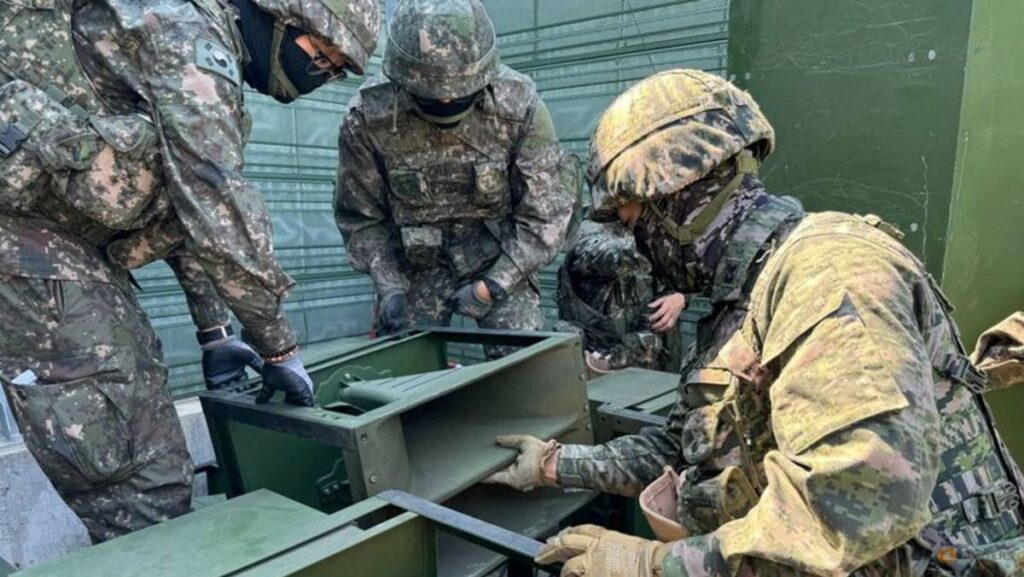The loudspeakers were turned on in the demilitarised zone that divides the two Koreas in June last year in response to a barrage of trash-filled balloons flown southward by Pyongyang.
The North claimed the balloons were a response to activists floating similar missives filled with anti-Kim Jong Un propaganda and US dollar bills northwards.
The two Koreas technically remain at war because the 1950 to 1953 conflict ended in an armistice, not a peace treaty.
The anti-North Korea broadcasts infuriate Pyongyang, which has previously threatened artillery strikes against Seoul’s loudspeaker units.
South Korea’s resumption of its broadcasts last year was the first time the tactic had been used in six years.
They typically consist of blaring K-pop songs and news reports into the North.
NO CHANGE FROM NORTH
In response, North Korea turned on its own propaganda broadcasts, sending strange and unsettling noises into the South at all hours, prompting complaints from border residents.
On Ganghwa island, which is very close to the North, villager Ahn Hyo-cheol told AFP that the North Korean noises had “not subsided at all” by Wednesday afternoon.
“While I don’t have high hopes for how North Korea might change, I think the government’s decision to halt loudspeaker broadcasts toward the North is the right move,” he said.
“It’s something we’ve been consistently calling for.”
Lee, who took office the day after last week’s election, has vowed to improve ties with the North through dialogue.
“No matter how costly, peace is better than war,” he said after he was elected.
North Korea has not commented on Lee’s election except for a brief news report informing its public of his win.
Lee comes to power with his party already holding a parliamentary majority, secure for the next three years, meaning he is likely to be able to get his legislative agenda done.

